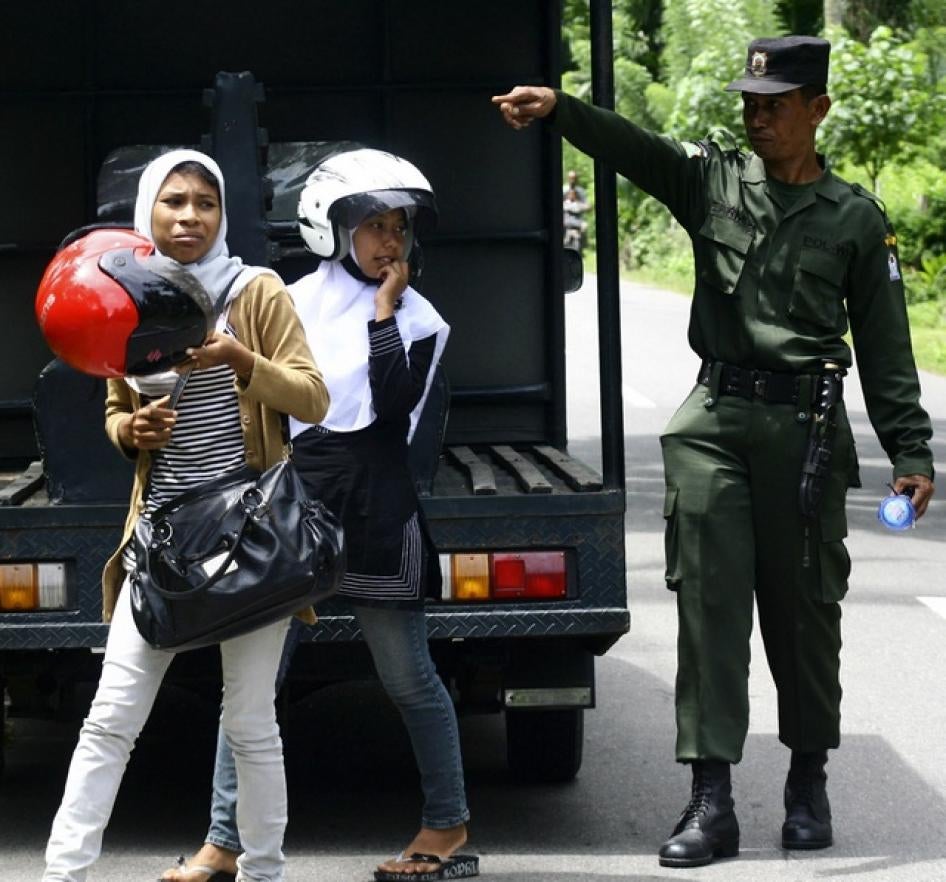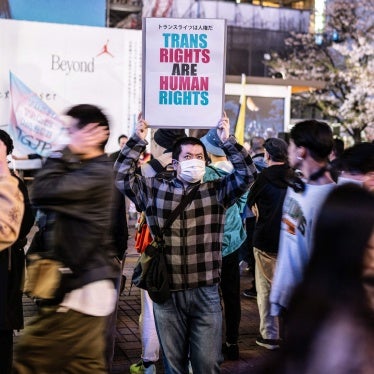Indonesia’s Minister of Home Affairs Tjahjo Kumolo backtracked on a pronounced commitment to abolish abusive Sharia regulations in the country.
Kumolo said last week that the government chose to ignore discriminatory Sharia or Islamic law-based local regulations while cancelling 3,143 other “problematic regional regulations” for violating the country’s credo of “unity in diversity.” Kumolo was unapologetic. “[Bylaw cancellation] is about investments,” he said. “We do not interfere with regulations based on Islamic Sharia.”
That’s bad news for women and lesbian, gay, bisexual, and transgender (LGBT) people, who are discriminated against under the Sharia regulations imposed by the Aceh provincial government in northwestern Indonesia. Aceh is the only one of Indonesia’s 34 provinces that can legally adopt bylaws derived from Sharia.
Human Rights Watch has documented human rights abuses linked to enforcement of Sharia bylaws prohibiting adultery, and imposing public dress requirements on Muslims. A khalwat law makes association by unmarried individuals of the opposite sex a criminal offense in some circumstances. While the dress requirement is gender-neutral on its face, in practice it imposes far more onerous restrictions on women with the mandatory hijab, or veil and long skirts. These “offenses” are not banned elsewhere in Indonesia.
On September 27, 2014, Aceh’s provincial parliament approved bylaws that extend Sharia to non-Muslims, criminalizing consensual same-sex sexual acts as well as all zina (sexual relations outside of marriage). The criminal code permits as punishment up to 100 lashes and up to 100 months in prison for consensual same-sex sexual acts, while zina violations carry a penalty of 100 lashes. The criminal code also allows Islamic courts to dismiss charges against rape suspects who take an Islamic oath, sumpah dilaknat Allah, asserting their innocence – so long as the court determines there’s a lack of incriminating “other evidence.”
Within days of Aceh’s bylaws coming into force, special Sharia police arrested two “suspected lesbians” – women aged 18 and 19 – who were spotted hugging in public. Police detained the women for four days, and released them into a government-run, week-long religious “rehabilitation” center.
Kumolo needs to recognize that cancelling laws that discriminate against women and LGBT people should be a greater priority than regulations “about investments.” Until the Indonesian government revokes discriminatory Sharia bylaws in Aceh, women and LGBT people will remain vulnerable to violations of their basic rights and freedoms.








